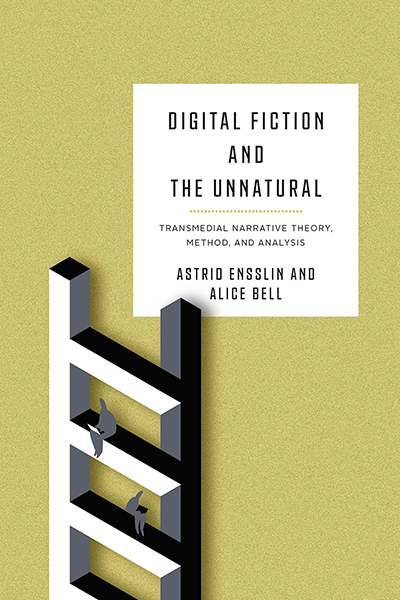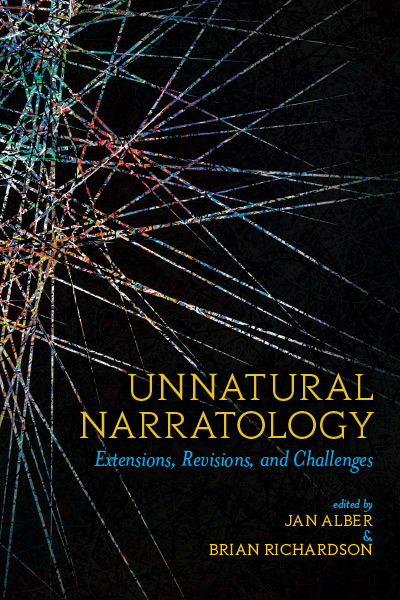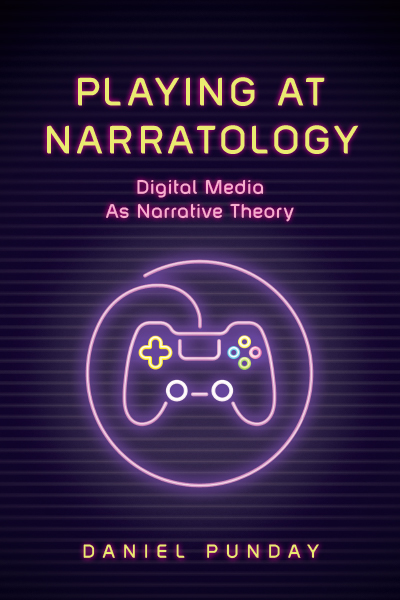“Pignagnoli’s monograph fulfills a vital need of linking trends in the digital literary sphere with formal and thematic obsessions of today’s literary fictions … A valuable starting point for a future study.” —Torsa Ghosal, DIEGESIS
“Pignagnoli addresses an important facet of contemporary narratology—the changing role of paratextual information for the communicative model of narrative—providing rich and compelling examples of the evolving condition of author/reader communication during the current digital age.” —Daniel Punday, author of Playing at Narratology: Digital Media as Narrative Theory
“The study of the paratext has become a typical feature of nearly any literary analysis, but as so many other aspects and dimensions of literary and rhetorical analysis, the digital turn has made it in need of a solid update. Pignagnoli’s study of the digital epitext fills in such a crucial gap, and it does so in a sound and useful way. … Pignagnoli is a good reader, a good writer, a good teacher.” —Jan Baetens, Leonardo
“Post-Postmodernist Fiction and the Rise of Digital Epitexts feels like a new tool to help with a tricky problem. … Pignagnoli’s work will be helpful in any classroom revolving around post-postmodern narratives, but it will also be helpful to any reader wondering how social media might influence the process of reading. … Though the text purports to delve only into a certain vein of fiction, understanding the popularity of these epitexts in this genre helps to understand wider effects of social media on literature today.” —Jacob Welcker, Rocky Mountain Review
“A phenomenal contribution to the field of paratextuality.” —Souhardya Chatterjee and Ujjwal Jana, Digital Scholarship in the Humanities
Post-Postmodernist Fiction and the Rise of Digital Epitexts explores new dynamics created by the intersection of digital media and contemporary fiction, arguing that these synergies are part of the cultural context in which the post-postmodernist novel emerges. Virginia Pignagnoli introduces a rhetorical theory of paratexts meant to reshape traditional views of paratextuality, providing categories, functions, and properties able to accommodate new digital practices, such as those of digital epitexts (authors’ social media posts and novels’ websites, for example), that widen the space for authorial creation and narrative exchange beyond the print novel. Focusing on the effects digital epitexts have on audiences, Pignagnoli presents an analysis of contemporary novels—by Michael Chabon, Jennifer Egan, Catherine Lacey, Meg Wolitzer, and Dave Eggers—that display a post-postmodern sensitivity in dialogue with some of the ways digital epitexts are currently employed. Ultimately, in showing how twenty-first-century novels and digital epitexts are co-constitutive, Pignagnoli offers a vision of a new post-postmodernism interested in sincerity, relationality, and intersubjectivity.
Virginia Pignagnoli is a Postdoctoral Fellow in the Department of English and German Philology at the University of Zaragoza.
Contents
Acknowledgments
Introduction
Chapter 1 A Rhetorical Theory of Paratexts
Chapter 2 Earnestness
Chapter 3 Materiality
Chapter 4 Intersubjectivity
Chapter 5 Instances of Co-Construction
Coda
References
Related Titles:

Digital Fiction and the Unnatural
Transmedial Narrative Theory, Method, and Analysis
Astrid Ensslin and Alice Bell

Unnatural Narratology
Extensions, Revisions, and Challenges
Edited by Jan Alber and Brian Richardson



